EB‑1A Fraud Crackdown: What The Debates, Panic, and Truth Look Like in 2025
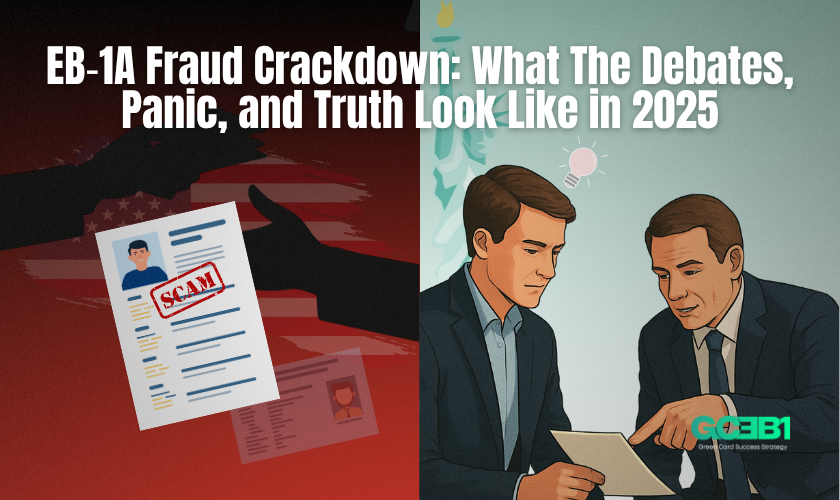
In June 2025, several journals and online media have reported that the U.S. Citizenship and Immigration Services (USCIS) has tightened its scrutiny on employment-based visas, particularly EB-1A. The available information casts a shadow of doubt on ongoing practices that promise to make a candidate EB-1A ready. The move triggered widespread rumors, online panic, and a surge of speculation that both truthful applicants and outright scammers can suffer from these consequences.
Amidst all the ensuing panics, we felt the need to summarise the available information as succinctly as possible and separate the truth from the fiction. As an important stakeholder in the visa & immigration landscape, we felt the need to straighten the tangle of information and compile it all as transparently as possible.
The Timeline of Information Bombs on EB-1A Malpractices
- On 11th June, Reddy Neumann Brown P.C. has uploaded a video on YouTube, namely: “USCIS Revoking EB‑1A Approvals: Paid Publications and Fake Awards Exposed”, which raises some serious concerns over revocations due to EB-1A malpractices. (4)
- On 13th June, the Financial Express reported that dozens of EB‑1A approvals, especially from Indian nationals, were under review or revoked, citing use of low-quality journals, co-authorship citation rings, and dubious awards like Stevie or Globee, often sold or minted via paid services. (1)
Though they did not produce any first-hand findings of their own. - On 26th June, VisaVerge presented a forensic breakdown detailing federal investigations into EB‑1A fraud schemes involving counterfeit awards, ghostwritten publications, and fabricated testimonials. However, they have also provided little to no firsthand evidence. (2)
- On 17th June, Smart Green Card publishes yet another video, dissecting and countering a few claims made in Reddy Neumann Brown’s video. (9)
Thoughts on EB‑1A malpractice: Two main currents of views
The fraud‑exposure camp
Immigration lawyers and watchdogs argue that EB‑1A petitions are riddled with manufactured achievements, fake awards, pay-to-publish papers, and coordinated citation rings. They see the crackdown as overdue redress. As VisaVerge framed it, “federal investigations into EB‑1A fraud schemes involve counterfeit awards, ghostwritten publications, and fabricated testimonials.”(2) Financial Express adds that many revoked cases originate from purchased or dubious accolades.(1)
Among the legal community, Reddy Neumann Brown PC is leading the conversation. Their YouTube video “USCIS Revoking EB‑1A Approvals: Paid Publications and Fake Awards Exposed” warns:
Another strand of thought emphasizes that genuine applicants are increasingly penalized, despite having authentic achievements, because of blanket enforcement and elevated standards. VisaVerge and other legal blogs note that even well-prepared applicants may trigger RFEs or denials if documentation is poorly organized or lacks thorough self-authored proofs.(2)
The ethical mentorship camp
Meanwhile, in a separate but complementary video titled "USCIS Revoking EB1A Approvals? The Truth About Fraud, Fake Awards & Judging", Smart Green Card brings legal clarity to the ongoing panic. He responds directly to Neumann Brown’s video and raises some important questions about the latter’s opinions.
He dives deeper into the types of fraudulent evidence being scrutinized: unindexed journals, manipulated citations, and award mills. He cautions that applicants relying on “shiny but shallow” documentation risk denial and blacklisting.
Yet, he maintains an optimistic undertone. He assures viewers that not all EB-1A paths are tainted and that a thoughtful, transparent approach rooted in real achievements still yields approvals. “You don’t need to game the system,” he says. “You need to understand it and align your efforts accordingly.”(9)
In his video titled "USCIS Revokes Approved Green Cards (EB1 Fraud)", Yash Mittra, another mentor and EB-1A guide, presents a stark yet necessary warning to applicants who try to manipulate their profiles. Mittra narrates several real cases where USCIS issued Notices of Intent to Revoke (NOIRs) even after applicants had already received approval.
He attributes this to the rising trend of “profile-building scams”, where candidates purchase fake awards, submit articles to predatory journals, or claim baseless judging experience. Mittra states plainly that USCIS is cracking down on such misrepresentations, and reminds viewers that "even after approval, you're not safe if you cheated the system"(8).
However, he tempers the fear with hope: for genuinely extraordinary individuals, the path remains intact and achievable. Mitra reaffirms that with the right mentorship and legitimate achievements, success in EB-1A is still very much possible.
What’s particularly noteworthy is that both voices arrive at a shared belief: while fraudulence has unfortunately grown due to rising demand and unscrupulous agencies, ethical EB-1A mentorship is not only possible, but preferable. Both stress the importance of real-world impact, community contribution, and verifiable merit as the core of a sustainable immigration strategy.
In sum, these videos also light a beacon of hope. They collectively urge aspirants to reject shortcuts and instead seek ethical mentorship, long-term growth, and evidence that reflects who they truly are.
Where do we come in?
You might be wondering why this debate matters to us. Where do we stand at this juncture? First, let us clarify that the ongoing debate voiced some concerns, and rightly so, about EB-1A malpractices. But some currents of this debate have downplayed the need and importance of an ethical and lawful mentorship program. Many budding industry experts do need additional guidance to showcase their achievements. However, you should be cautious to spot the fraudulent EB-1A practices. Here are some red flags you need to look out for.
Red flags of the fraudulent EB-1A petition process
So, without further ado, let’s take a look at the quintessential red flags plaguing the EB-1A landscape. Taking hints from several sources and expert opinion, we have compiled what we think is the ‘off-limits’ for EB-1A petition. If you are an aspirant, you will do better by steering clear of the following practices.
Publishing in predatory journals
These journals allow applicants to inflate their research credentials without undergoing the scholarly scrutiny expected by USCIS. When individuals use such publications to falsely establish "extraordinary ability," it undermines the integrity of the EB‑1A category.
Fake or ghost‑written articles & citations
Publications written by agencies, not by the applicant, can flag untrustworthiness in your EB-1A practice. Moreover, citations generated through artificial networks are also being closely scrutinized by the USCIS.
Self‑promotional media coverage
Media articles that appear without independent editorial oversight, especially those on obscure outlets or solely promotional platforms, can severely undermine your credibility.
Borrowed or fabricated evidence
Claims like “I have 15 citations” built from ghost-writing or made-up research, patents that don’t exist, or even paying for inclusion in a “patent today” list are big red flags.
Aggressive case‑builder promises
Services offering “done-for-you” EB‑1A cases or guaranteeing fast approval by quickly assembling achievements often press applicants into fraud.
Discrepancies or misrepresentation of material facts
Mismatches in job titles, salaries, institution reputations, or notably missing documentation under oath may trigger Notices of Intent to Deny (NOID) or even revocation.
Our mentorship stands against and clear of these unethical practices
Now, it falls on our share to show we don’t indulge in the above-mentioned unethical and murky practices. At GCEB1, we have been providing ethical assistance to aspirants with quiet respect and dignity for the last seven years. We have been providing mentorship to industry experts and specialists on how they can showcase their extraordinary abilities to the USCIS. All our services are organized around this simple vision and goal. We believe that with the right knowledge, any skilled industry expert can meet the criteria of the EB-1A green card.
The nature of our practice and our goals
In our practice, we don’t spoon-feed you or do everything on your behalf. The mentors are not supposed to do everything for the clients. They can provide mentorship, and there is nothing wrong or illegitimate with it. For instance, you may need a guide or professor when you are engaged in a PHD program. They can give you tailored guidance, suggest relevant materials, and help you become the best version of yourself. This is exactly what we do vis-à-vis (Pun intended!) EB-1A.
Ethical mentorship
We provide mentorship for paper publication, patent drafting, and more. Our services are designed to give you a focused outlook toward your EB-1A goals. Many industry professionals sometimes feel dissuaded about whether they can publish a paper. There is nothing illegitimate about publishing a paper. Nobody restricts you from publishing any authorship material as long as it is originally written. Moreover, there are many industry professionals who, despite having a long experience in their specialised fields, have never published a paper. We help experts like them articulate their voice better through our mentorship.
However, you should stay cautious of services that promise to do everything on your behalf and even promise EB-1 readiness within a scheduled time. EB-1 readiness does not work like that.
The bottom line
At the end of the line, we want to remind you about the most precious thing to qualify for the EB-1A visa requirements. EB-1A visa approval rate varies every year, and it depends on the expertise and authority of the applicant. So, don’t just check boxes; you should also focus on the real impacts and showcase your real-world achievements. On our part, we can help you develop a compelling narrative to showcase all your laurels of achievements.
We have a free assessment here, so don’t hesitate to try it out. Also, let’s get in touch, and we can give you a better idea about how our mentorship can help you. We wish you all the best in your journey.
Bibliography
News & Analysis
VisaVerge Network. “Types of Fraudulent EB‑1A Evidence with Detailed Examples.” VisaVerge, June 26, 2025.(2)
The Times of India. “Now, Indians Eye US Entry through Paid Authorships; Fake Papers Used to Fast‑Track EB1A Visas.” Times of India, July 15, 2025.(3)
YouTube Videos
Reddy Neumann Brown PC. “The Dangers of Fake Evidence in EB‑1A Cases.” YouTube video.(5)
Boundless × EB‑1A Experts. “EB‑1A Evidence: How to Avoid Fraud and Misrepresentation.” YouTube video.(6)
Ustun Law Group, PLLC, “EB‑1A Evidence: Published Material About YOU.” YouTube video.(7)
Yash Mittra, “USCIS Revokes Approved Green Cards (EB1 Fraud),” YouTube video, 9:50, posted July 2025, https://www.youtube.com/watch?v=J7VeigQPXZU.(8)
Smart Green Card, “USCIS Revoking EB1A Approvals? The Truth About Fraud, Fake Awards & Judging,” YouTube video, 12:17, posted August 2025, https://www.youtube.com/watch?v=eMxaEo7MKp8.(9)





.png)
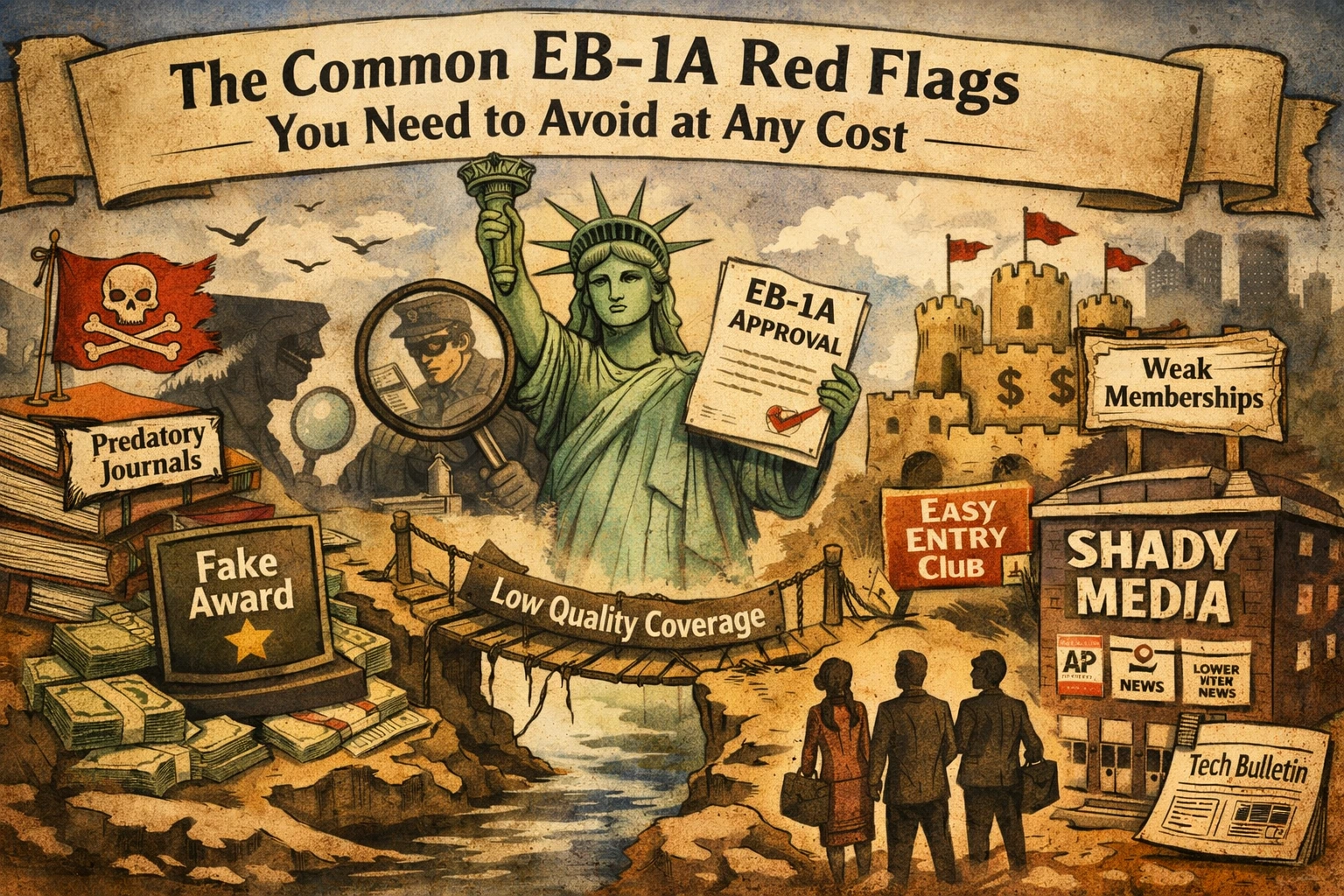
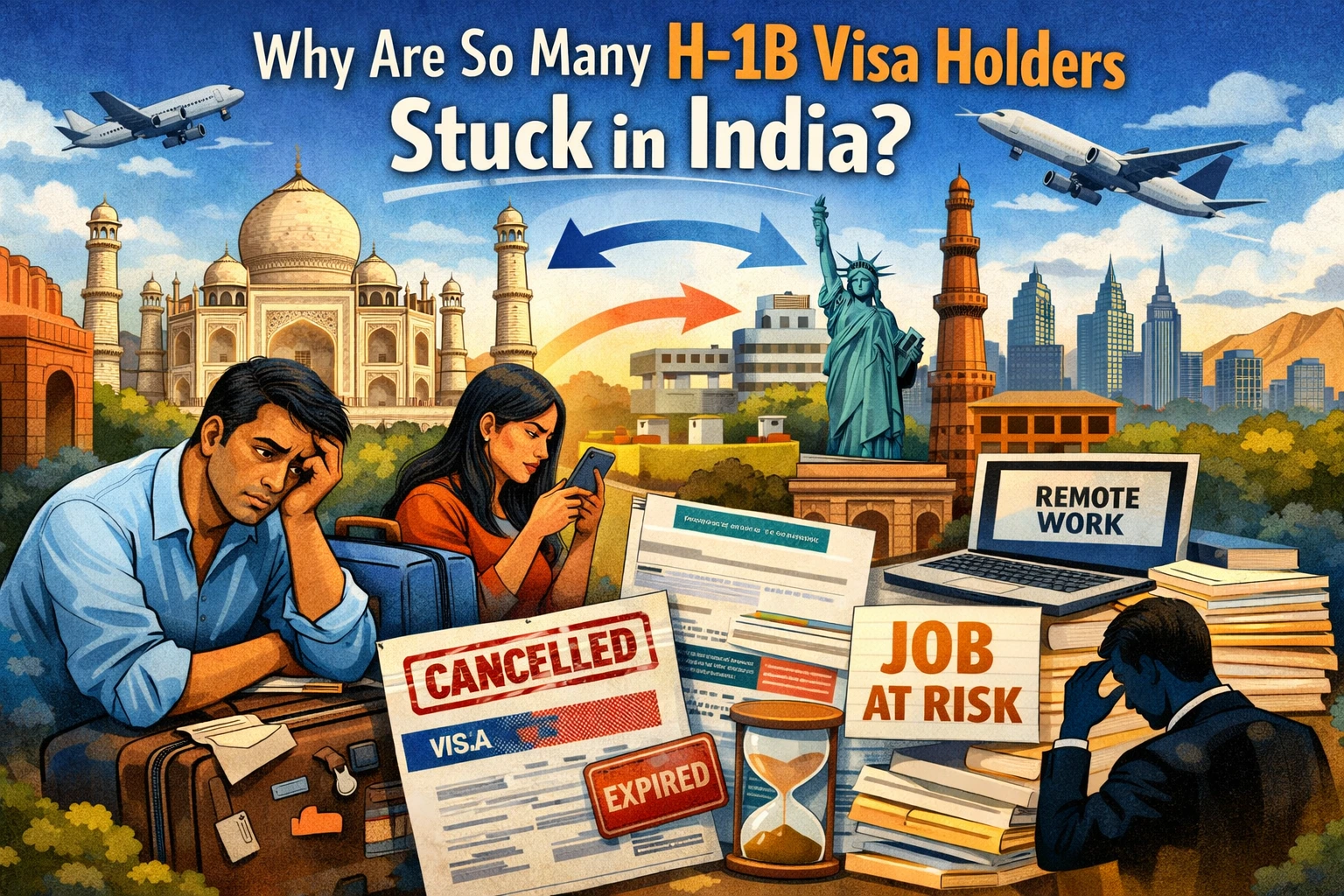
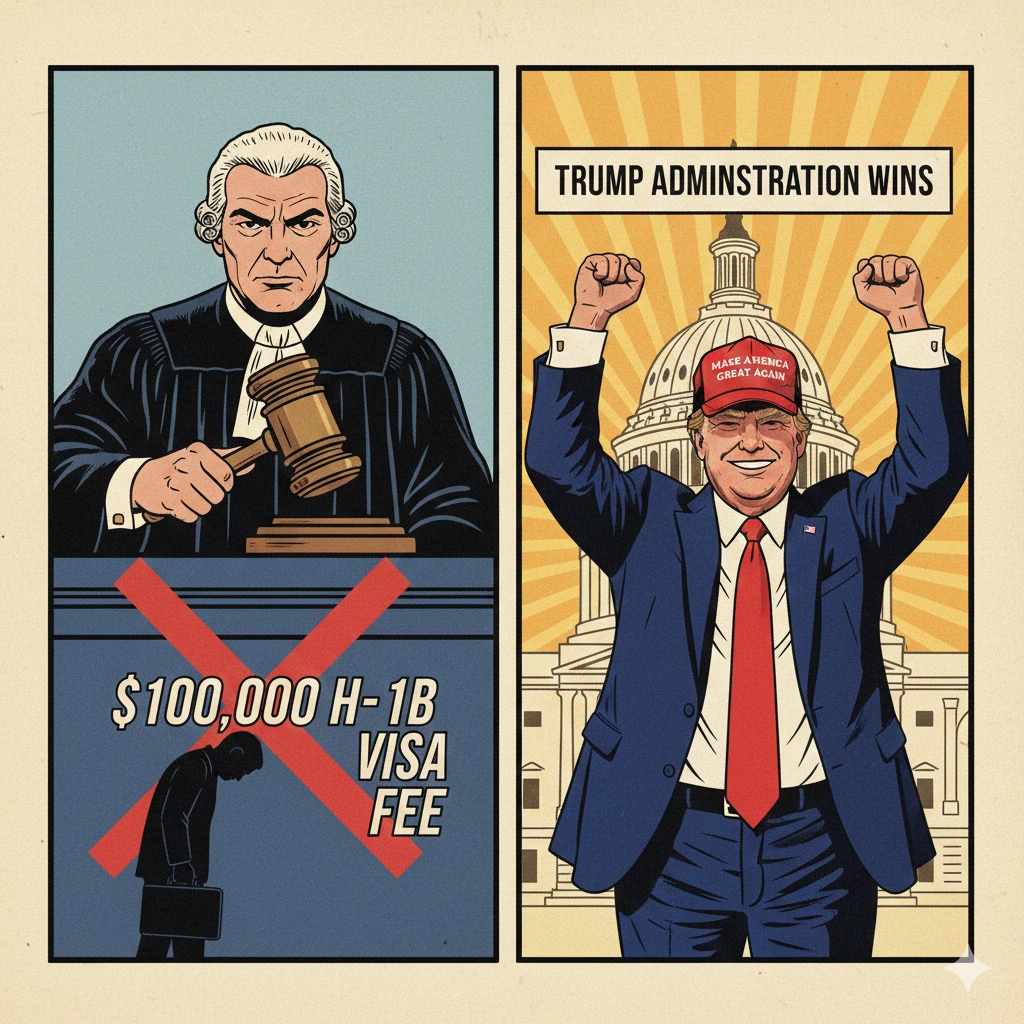
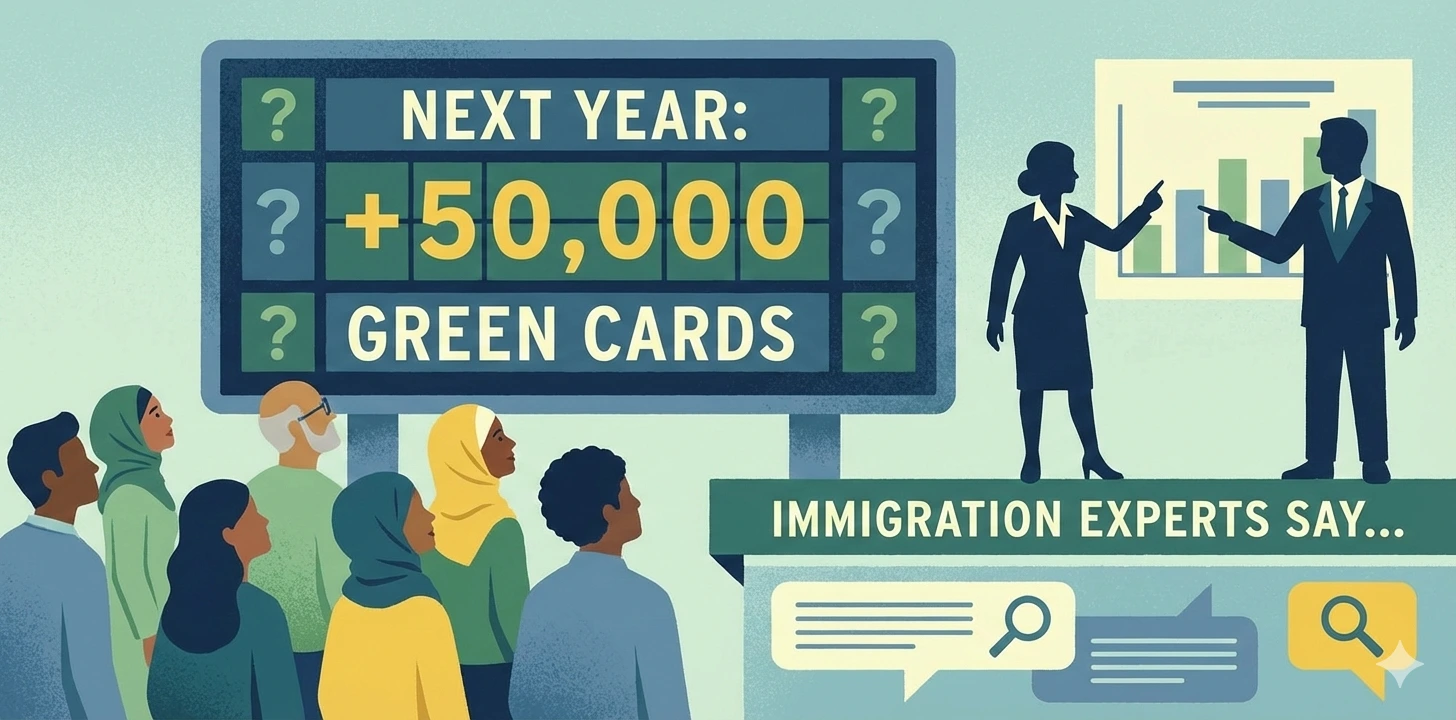
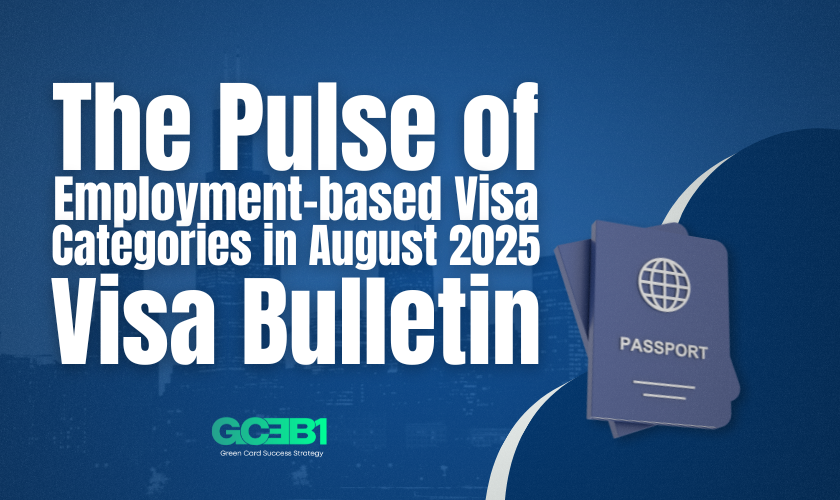
.png)
.png)
.webp)
.png)